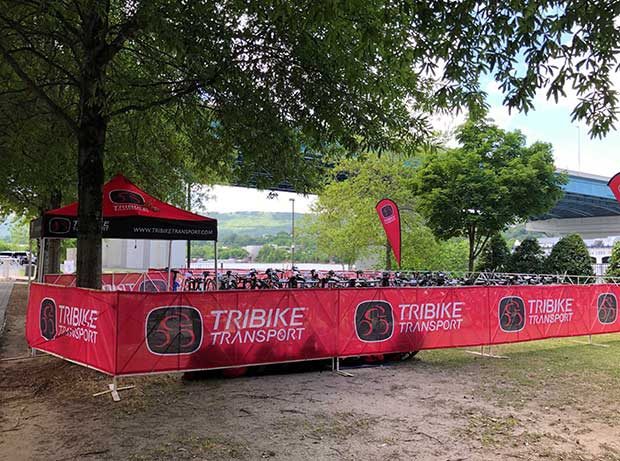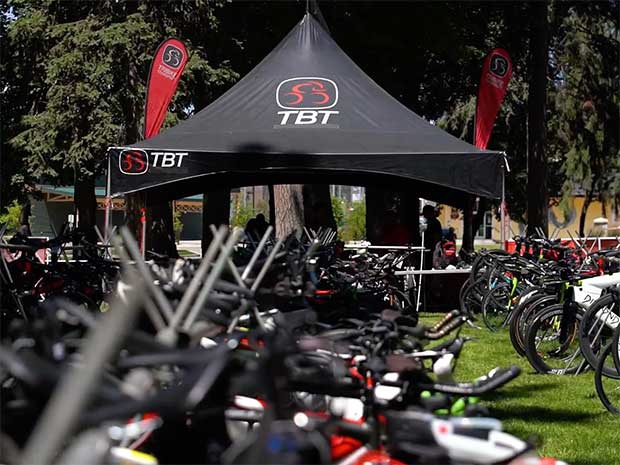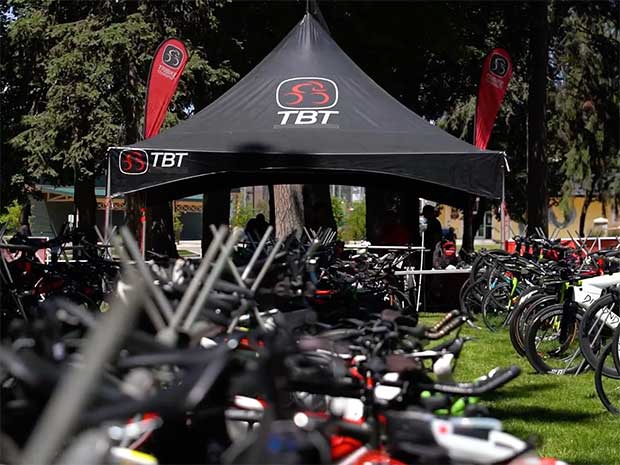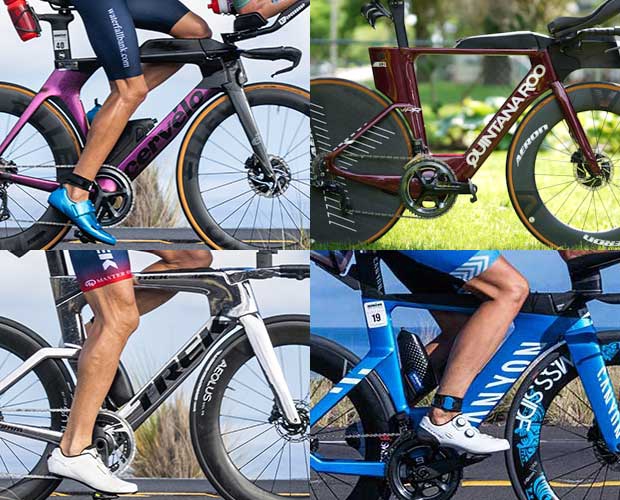TriBike Transport Update

You may know by now that TriBike Transport is in flux. Somewhere between flux and crisis. Based on interviews and discussions with relevant parties here is the current fate of bikes en route to and from events, along with an update on TriBike Transport itself.
Go here for an overview or for the short version: TriBike Transport ran out of operating money about 3 weeks ago. As TBT expanded its service (over the years) to overseas shipments the use of a freight forwarder was required and TBT owed its freight forwarder (rounding) $320,000 for 3 shipments (to Lahti, Nice and Pontevedra). That last shipment of 186 bikes returning from the World Championship event in Pontevedra, Spain is being held by that freight forwarder pending payment of the invoices to all 3 of these race locations.
The freight forwarder is Intelligent SCM, LLC, with Horizon Entertainment Cargo (HE Cargo) as, apparently, a dba. At least 3 lawsuits have been filed: TBT’s lawsuit against HE Cargo in North Carolina (where the Pontevedra bikes cleared customs); Intelligent’s claim against TBT in Los Angeles for unpaid invoices; and an intended class action lawsuit brought on behalf of the Pontevedra bike owners.
TBT ran out of cash during the world championship months of September and October. IRONMAN stepped in, opening its checkbook to fund operations for all IRONMAN’S races through Cozumel and Arizona because of the very real specter of athletes arriving at these races without their bikes awaiting them.
The Pontevedra bikes remain unreleased (IRONMAN didn't step in) because it wasn’t IRONMAN’s race. This was the site of the age group championship, participated in by athletes qualifying at USA Triathlon’s national championship event(s). USA Triathlon’s response so far is to try to crowdsource bikes for Pontevedra bike owners to use, as they'll be without bikes during litigation.
Intelligent is hard hit. According to its lawyer, Howard Zelener, it paid near $300,000 in hard costs to ship all these bikes. It’s current position is that the bikes won’t be released until $360,000 is paid: Freight for Pontevedra, Lahti and Nice plus interest and legal fees. Intelligent was looking to the Pontevedra athletes for this, and there was an effort to raise that money via GoFundMe. By looking to the athletes whose bikes are in limbo to pay this bill Intelligent intended for them to pay freight for their bikes a second time (they already paid TBT), and they needed to pay the freight bill for those who raced in Nice and in Lahti, and $40,000 beyond that. Also, one presumes they need to pay the packing and freight to get their bikes back home.
That GoFundMe effort was short-lived as the crowdfunder disallowed the using of its platform and it’s unclear why, but one explanation is because of pending litigation (they won't allow a crowdfund on its platform if there's another funding avenue). After the GoFundMe effort failed Intelligent reached out to USAT, but that organization has chosen not pay the accumulated freight bills.
There is currently no pathway for that bill to be paid by these athletes in the aggregate since there is no crowdfund platform. TBT is out of money. No one else appears inclined to pay that bill.
The lack of any movement means an imminent deadline has arrived. IRONMAN’s leadership was driven by expediency, and because it has underwritten the operations of TBT’s hub-and-spoke network its involvement lubricated the process of moving bikes around the U.S. and Mexico. That network goes away once the Cozumel and Arizona bikes are loaded onto trucks bound for TBT’s partner bike shops from whence they came. If IRONMAN were to agree to let the Pontevedra bikes hitchhike a ride to those shops, which the IRONMAN-funded TBT trucks are going to anyway, those Pontevedra bikes have a ride home. Once that network is gone those bikes (which based on athletes’ Airtags appear now to be in California) have to get boxed up and shipped to their owners. Assuming (say) that 30 of those bikes are within driving distance to their owners, that leaves at about 150 bikes that must get boxed and shipped. Who will pay $30,000 to $40,000 to underwrite that labor, the boxes, and the freight? (This is an estimate of what it will cost.) The only way to avoid that cost is for the Pontevedra bikes to get to TBT’s hub (Asheville, NC) at or before IM Arizona’s bikes back to Asheville, and that deadline passes right about now.
Intelligent apparently thinks it has the right to place a lien, and eventually claim as its own, a consignment of property not owned by the entity that owes it money. It might be right, or, it might be right in California but wrong in other states. Attorneys in North Carolina and New Jersey, in their lawsuits brought against Intelligent, believe otherwise.
What about the future of TriBike Transport? Iffy. Not dead, not fully alive. Here’s what’s true, regardless. Our current poll asks, “If you're in the U.S. and you contest IRONMAN events in the U.S., do you use TriBike Transport and how important is this service to you?” Of the 75 percent of respondents who live in the U.S. and race IRONMAN events, just over 60 percent of you don’t rely on TriBike Transport. Of the others, about 15 percent of you use TBT but “would be okay.”
This leaves about a quarter of you who race in the U.S. and, “Plan to use TBT and would struggle to get your bike to events without them.” What this means is that this company wasn’t just a sponsor of IRONMAN but was a true, symbiotic strategic partner. While not quite as dire, it’s as if the porta-john supplier went out of business and there was no other renter of porta-johns. If you’re IRONMAN, you don’t just lose a paying sponsor, you lose a vital part of your operations or, more precisely, a vital part of your customer's operations. The Slowtwitch poll is recent, with only 400-plus respondents. And, it has its limitations, for example, respondents are typically skewed toward those with a specific interest in the poll. Nevertheless, 62 percent of respondents who use TBT say they’d “struggle” to get their bikes to IRONMAN races, and 38 percent saying they’d “be okay.




